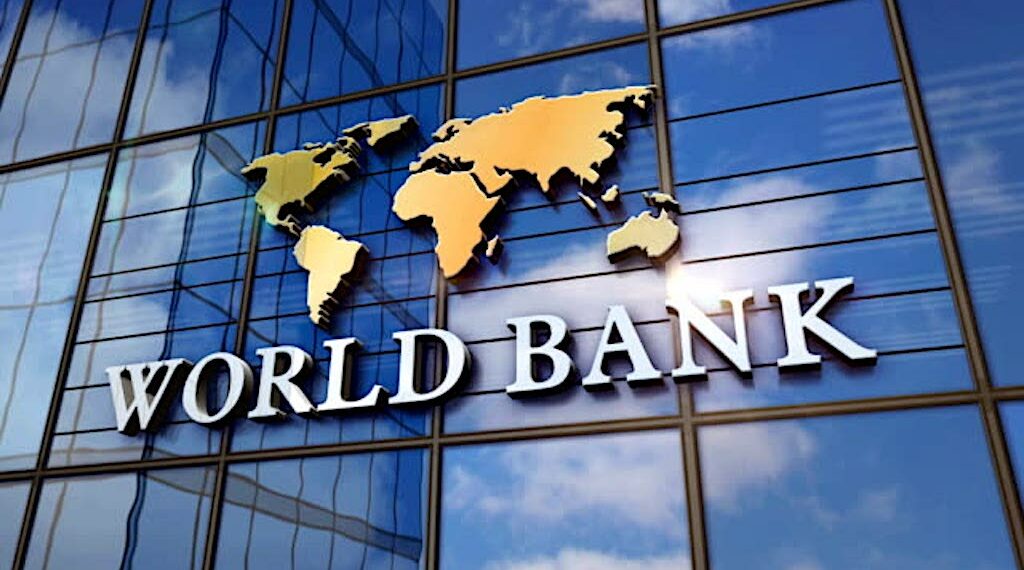The global economy is facing its slowest growth since the 2008 financial crisis—excluding periods of outright recession—according to the World Bank’s latest Global Economic Prospects report. Trade tensions, policy uncertainty, and slowing investment are dragging down global output, with growth forecasts downgraded for nearly 70% of all economies worldwide.
Global GDP is now projected to grow at just 2.3% in 2025, down nearly half a percentage point from previous estimates at the start of the year. While a full-scale recession is not anticipated, the World Bank warns that if current projections hold, the average growth rate for the first seven years of the 2020s will mark the slowest decade of global expansion since the 1960s.
“Outside of Asia, the developing world is becoming a development-free zone,” said Indermit Gill, World Bank Group Chief Economist. “Growth in developing economies has slowed over the decades—from 6% in the 2000s to less than 4% in the 2020s—mirroring a similar decline in global trade and investment.”
Developing Economies Struggle
The report paints a sobering picture for developing countries, with growth expected to slow in nearly 60% of them. Average growth in developing economies is projected to be 3.8% in 2025, rising only slightly to 3.9% over 2026 and 2027. These figures are over one percentage point lower than the average recorded during the 2010s.
Low-income countries are expected to grow by 5.3% in 2025, a downgrade of 0.4 percentage points from earlier forecasts. The downturn will significantly impact poverty reduction efforts, job creation, and income convergence with wealthier nations.
“Emerging-market and developing economies reaped the rewards of trade integration but now find themselves on the frontlines of a global trade conflict,” said M. Ayhan Kose, the World Bank’s Deputy Chief Economist. “The smartest response is to deepen integration with new partners and advance pro-growth reforms.”
Per capita income growth in developing economies is forecast at just 2.9% in 2025, significantly below the 2000–2019 average of 4%. Without a strong rebound, these economies—excluding China—could take two decades to return to their pre-pandemic growth trajectory.
Global Trade, Inflation and Debt Worsen Outlook
The report highlights that global trade growth has also slowed sharply, declining from 5% in the 2000s to under 3% in the 2020s. Investment has weakened, while public and private debt levels have reached record highs.
At the same time, global inflation remains elevated at a projected 2.9% for 2025, driven by rising tariffs and tight labor markets. This remains higher than pre-pandemic levels and continues to strain household budgets in both rich and poor nations.
Policy Recommendations and Hope for Recovery
The World Bank urges governments, particularly in developing nations, to focus on domestic revenue mobilization, prioritize fiscal support for vulnerable populations, and strengthen fiscal frameworks to weather the slowdown.
It also advocates for improving the business climate, investing in skills development, and creating labor market conditions that promote productive employment.
Still, there is room for cautious optimism. If trade tensions ease and new agreements halve current tariffs, global growth could be 0.2 percentage points stronger on average in 2025 and 2026, the report suggests.
The World Bank calls for renewed global dialogue and cooperation to restore trade flows and promote a more inclusive and resilient economic recovery.
⸻
Regional Highlights
• East Asia and Pacific: Growth expected to slow to 4.5% in 2025 and to 4.0% in 2026–27.
• Europe and Central Asia: Forecast to decline to 2.4% in 2025, then rise to 2.6%.
• Latin America and Caribbean: Stable at 2.3% in 2025, rising to 2.5%.
• Middle East and North Africa: Predicted to rise to 2.7% in 2025, and 3.9% by 2027.
• South Asia: Slows to 5.8% in 2025 but strengthens to 6.2% by 2027.
• Sub-Saharan Africa: Expected to edge up to 3.7% in 2025, averaging 4.2% in 2026–27.
By Abu Kamara and Steve Fullah



